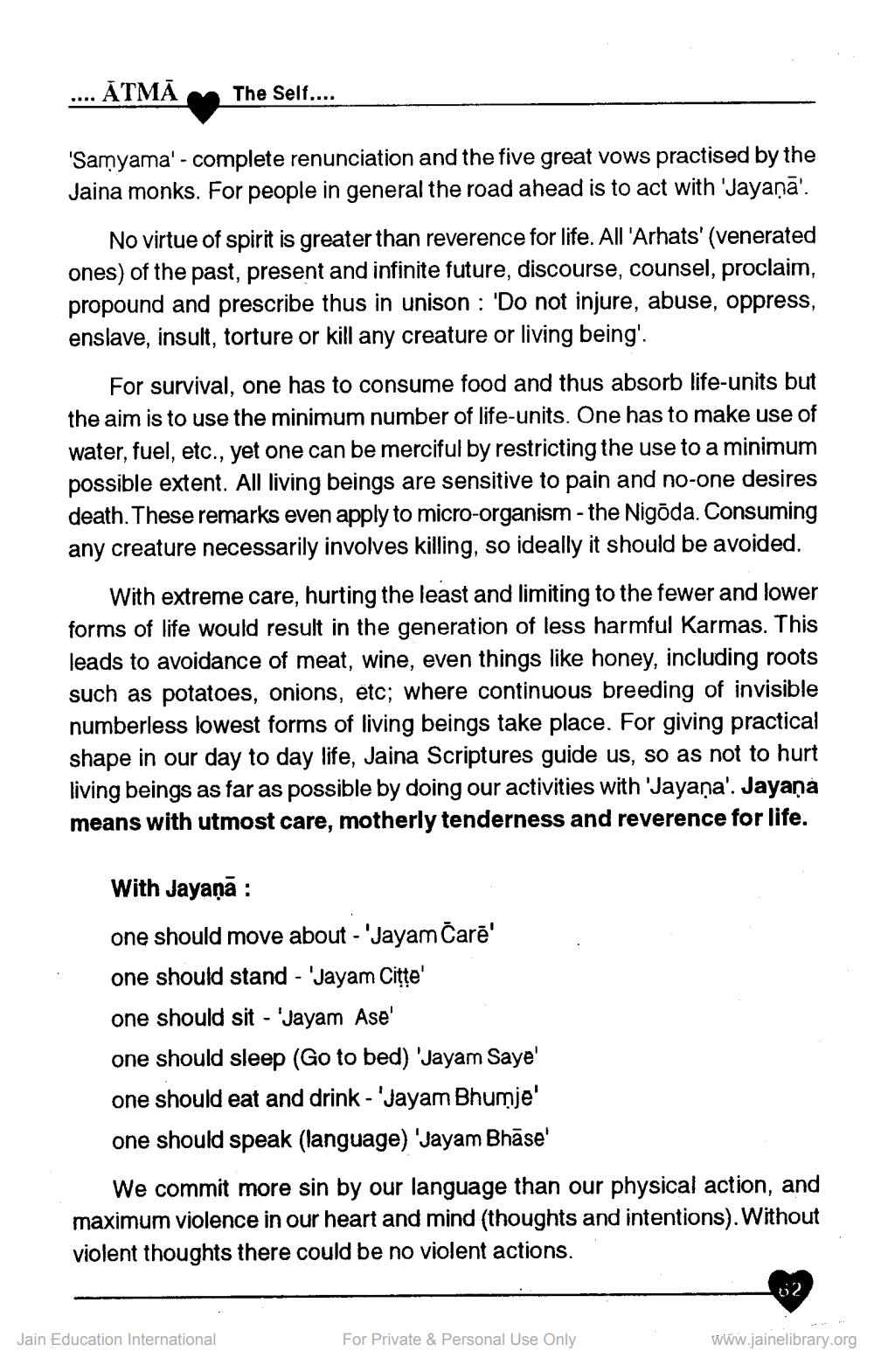________________
.... ATMĀ
The Self....
'Samyama' - complete renunciation and the five great vows practised by the Jaina monks. For people in general the road ahead is to act with 'Jayaņā'.
No virtue of spirit is greater than reverence for life. All 'Arhats' (venerated ones) of the past, present and infinite future, discourse, counsel, proclaim, propound and prescribe thus in unison : 'Do not injure, abuse, oppress, enslave, insult, torture or kill any creature or living being'.
For survival, one has to consume food and thus absorb life-units but the aim is to use the minimum number of life-units. One has to make use of water, fuel, etc., yet one can be merciful by restricting the use to a minimum possible extent. All living beings are sensitive to pain and no-one desires death. These remarks even apply to micro-organism - the Nigoda. Consuming any creature necessarily involves killing, so ideally it should be avoided.
With extreme care, hurting the least and limiting to the fewer and lower forms of life would result in the generation of less harmful Karmas. This leads to avoidance of meat, wine, even things like honey, including roots
toes, onions, etc: where continuous breeding of invisible numberless lowest forms of living beings take place. For giving practical shape in our day to day life, Jaina Scriptures guide us, so as not to hurt living beings as far as possible by doing our activities with 'Jayana'. Jayaņa means with utmost care, motherly tenderness and reverence for life.
With Jayaņā :
one should move about - 'Jayam Čarē' one should stand - 'Jayam Citte' one should sit - 'Jayam Ase' one should sleep (Go to bed) 'Jayam Saye' one should eat and drink - 'Jayam Bhumje' one should speak (language) 'Jayam Bhāse'
We commit more sin by our language than our physical action, and maximum violence in our heart and mind (thoughts and intentions). Without violent thoughts there could be no violent actions.
Jain Education International
For Private & Personal Use Only
www.jainelibrary.org




